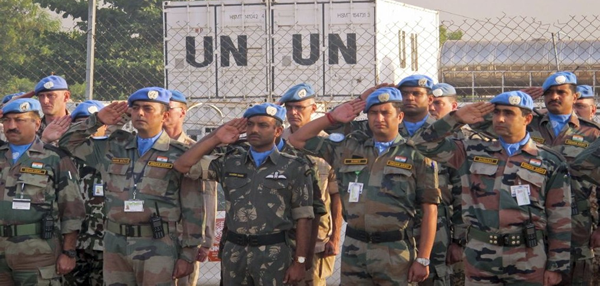As the proposed foreign protection troops from the regional countries prepare to set foot on South Sudan’s capital Juba, analysts have said they will not entirely solve the political mess.
This came after renewed fighting on July 8-11, between Sudan People’s Liberation Army-In Opposition rebels (SPLA/M-IO) led by Riek Machar and troops loyal to President Salva Kiir, left some 272 people killed and 60,000 seeking refuge in neighbouring countries.
This is despite the two warring parties having signed the now tattered peace agreement in August 2015, to end more than two years of civil conflict that broke out in December 2013.
And the resumption of recent fighting forced Machar to flee the capital with his troops, leading to his replacement as first-vice president with Taban Deng Gai, his former chief negotiator.
South Sudan last week agreed to the African Union (AU), UN and the Inter-Governmental Authority on Development (IGAD) proposed deployment of the much-awaited protection force requested by Machar for him to return to the capital and continue to work with President Kiir in the now weak transitional unity government (TGoNU) formed in late April.
The foreign force agreed upon in principle by the parties will be for protection of internally displaced persons, humanitarian agencies and the Joint Monitoring and Evaluation Commission (JMEC) – the peace monitors.
“The composition, mandate, armament, deployment, timing and funding shall be agreed upon by the TGoNU and troop contributing countries,” the summit resolved.
The US last week made request to the United Nations Security Council (UNSC) to expedite support for the deployment of 4,000 strong force to beef up the 12,000 strong UN peacekeeping mission in South Sudan (UNMISS).
This means the AU regional force will have to remain in the wings as its operational funding and deployment hinges on the decision of the UNSC.
But analysts say the situation is a win-win situation for South Sudan and IGAD as the region could not afford to watch on as the oil-rich impoverished country descended into anarchy, five years on after it won independence in 2011 from Sudan.
“What IGAD has done is consistent with the peace agreement. You could say the government has conceded by accepting to foreign troops but it’s not the case since earlier on the talk was of an intervention force before reverting to protection force,” Zacharia Diing senior policy researcher at the Juba-based Sudd institute said.
He added that though the IGAD encourages Machar to return and be part of the peace building in the country, it remains lukewarm on whether Deng would vacate the position out rightly for the latter.
“They have come closer to this question, but they have not strongly dealt with it,” he said.
Diing quotes article 13 (C) which says that leadership changes in SPLM/A-IO is solely an internal matter and the region should work with the current setup of the TGoNU. And prior to this, the government spokesman, Michael Makuei, had hinted that Machar will be returning as an ordinary person and not to his previous position. Abraham Awolich, a Juba-based political and policy analyst, says that the government has the security situation in Juba under control in the wake of intense fighting in July.
And that this may allow the government to reluctantly let in the regional troops, after one month of fighting that saw it deploy attack helicopter gunships and armored personnel carriers against the SPLA-IO who fled their cantonment site into thick bushes near Juba.
“They (regional countries) thought that intense fighting was going to continue for some time. The government announced ceasefire and the context of the conflict changed,” he observed.
With this he opines that balance of power has been tilted in favour of President Kiir’s camp. “The government is fully in charge of Juba and not calling for more troops. The force may actually never set foot in Juba since its size and mandate is going to be decided by government,” he observed.
Diing corroborates him, as he disclosed that Juba may finally see foreign troops deployed only when the situation escalates into violence, and that as of now the government will not be in a hurry to implement something whose details are still missing.
“The details are not yet worked out. Should there be disagreement then you may not have agreement,” Diing revealed while explaining the cumbersome issues that may delay the deployment of the said troops.
Awolich said the SPLM/A-IO have not gotten what they initially advocated, since the proposed force is not interventionist but protective in nature. “The SPLM/A-IO wanted a force that would come in and impose a ceasefire so that the government stops pursuing Machar, hence his safe return but I don’t think they got it,” Awolich noted.
He added that South Sudanese should be at the center of the discussion of the internal crisis, despite the international community and region providing humanitarian support.
First published in XINHUA







